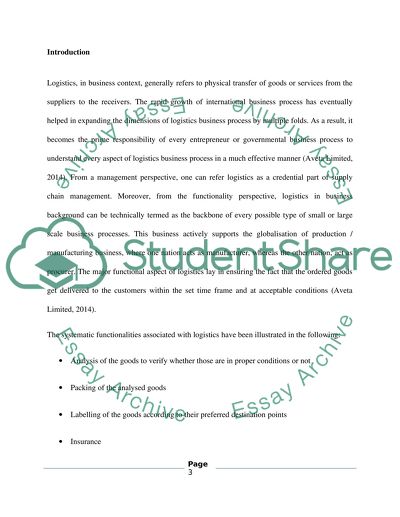Cite this document
(“Logistics Essay Example | Topics and Well Written Essays - 4000 words”, n.d.)
Retrieved from https://studentshare.org/professional/1666289-logistics
Retrieved from https://studentshare.org/professional/1666289-logistics
(Logistics Essay Example | Topics and Well Written Essays - 4000 Words)
https://studentshare.org/professional/1666289-logistics.
https://studentshare.org/professional/1666289-logistics.
“Logistics Essay Example | Topics and Well Written Essays - 4000 Words”, n.d. https://studentshare.org/professional/1666289-logistics.


